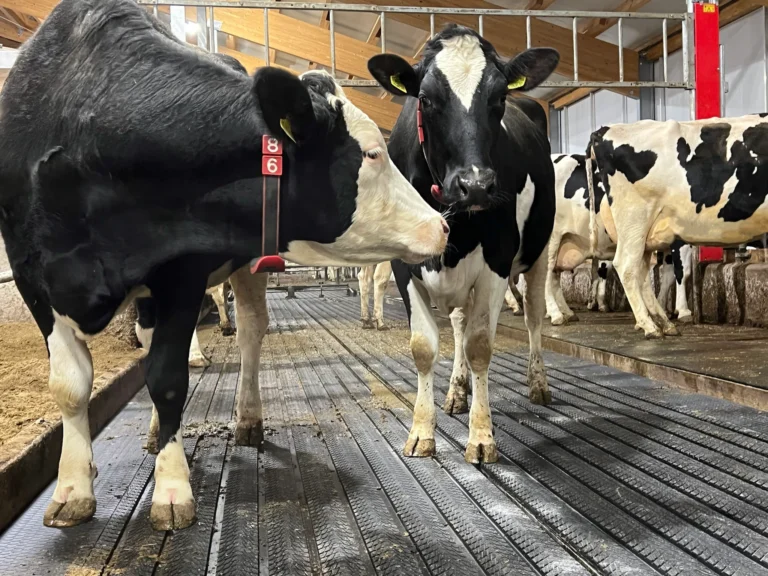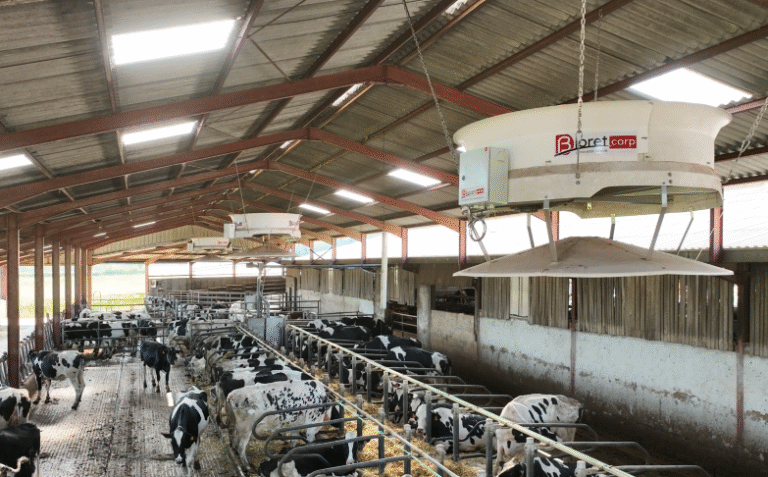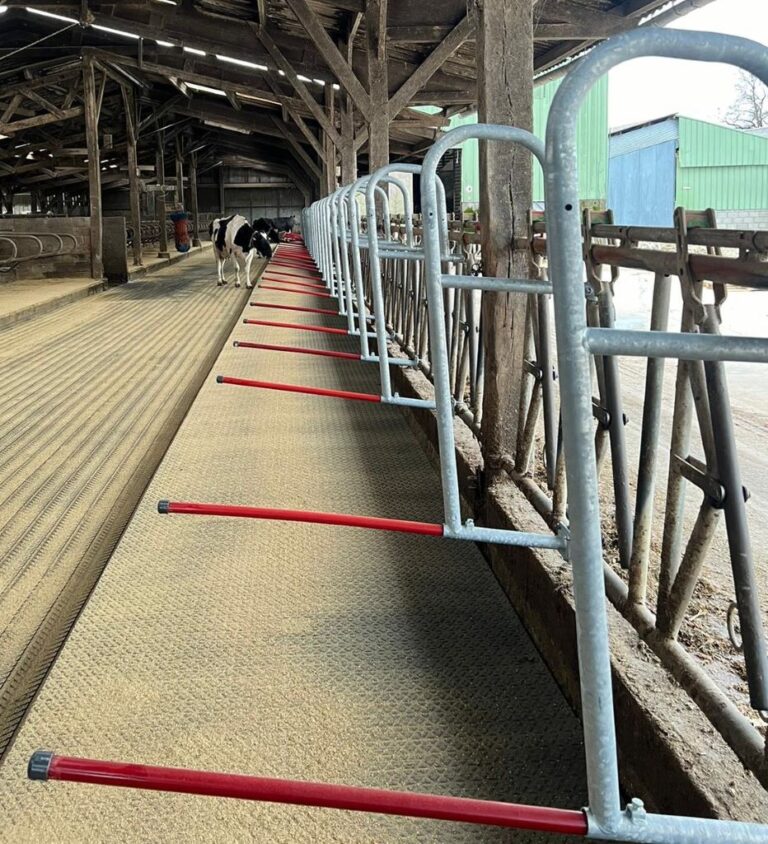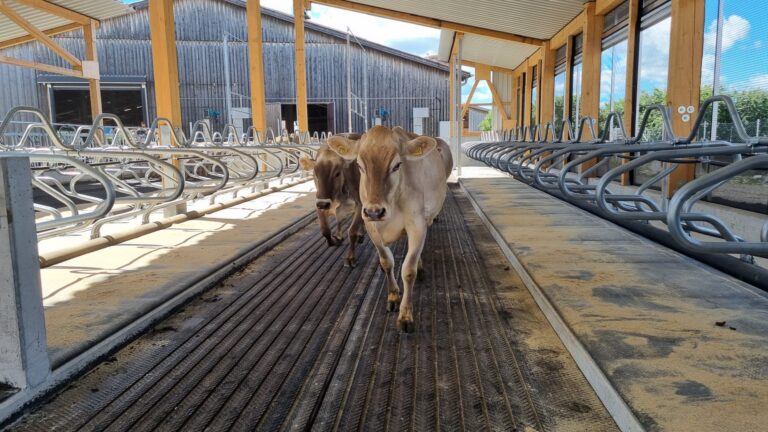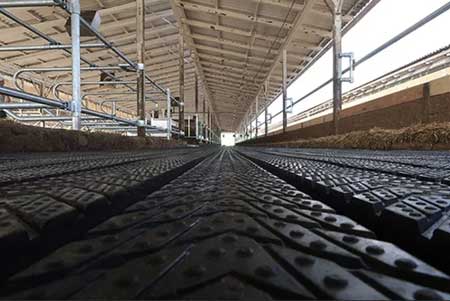Cleanliness of alleys and stalls: focus on the right slope
In your buildings, the alley floor is generally smooth and flat. The pursuit of optimizing their maintenance while respecting animal comfort has led to a simple idea that improves the health of your dairy cows: installing a lateral slope in the alley to facilitate drainage. Effluent and milk are evacuated more quickly towards the center of the alley, resulting in drier stalls and healthier, cleaner cows. Here's how.
Clean and dry building for healthy cows
The risk of infection is ever-present in the building. To limit it, it is crucial to identify points of concern such as resting areas, which must remain as clean as possible, and areas with high bacterial potential. Along the alleys, at the end of the stalls, milk, urine, and other effluents tend to stagnate. The cows' tails soak in these damp areas, soiling both the animal and its stall. These contaminants promote the development of bacteria, increasing the risk of infections, especially mastitis.
A 3% slope to facilitate drainage
Installing a slight transverse slope in the alley allows effluent and milk to drain towards the center of the alley. The scraper system becomes more effective. As an expert in cow welfare, which leads to improved profitability for dairy operations, Bioret Agri has designed Pente Plus. This molded polyethylene covering, installed on each side of the alley, features a 3% slope and is covered with rubber, preventing the stagnation of urine and milk spills at the rear of the stall. The cows' tails and legs are therefore protected from dirt and potential contamination, and the stalls are cleaner.
Improved building performance
The use of Pente plus, combined or not with the installation of suitable flooring such as the draining mat Magellan, makes it possible to correct masonry defects that cause areas of wet stagnation. Beyond facilitating building maintenance, its performance in reducing ammonia emissions is improved. The Bioret Agri innovation Pente Plus, which has been patented, is indeed approved internationally. The equipment is even recommended by the Vera Protocol for the reduction of greenhouse gas (GHG) emissions from livestock farms.
You can opt for Pente Plus both when renovating a building and when constructing new facilities. This process has the advantage of not blocking access to the building for an extended period, unlike major masonry work. Bioret Agri's teams only need a few hours to complete a turnkey installation of Pente Plus. The scraping system in place on the farm can be easily adapted to this new surface inclination. Bioret Agri was born from a dairy farmer's need to find practical solutions to the concrete problems of his daily life. Pente Plus is one of the solutions provided for more sustainable and profitable farming.
